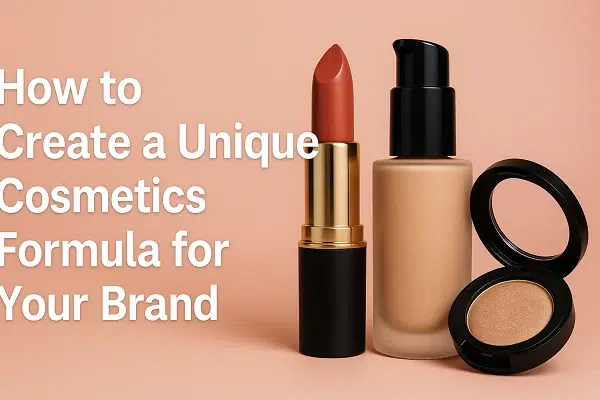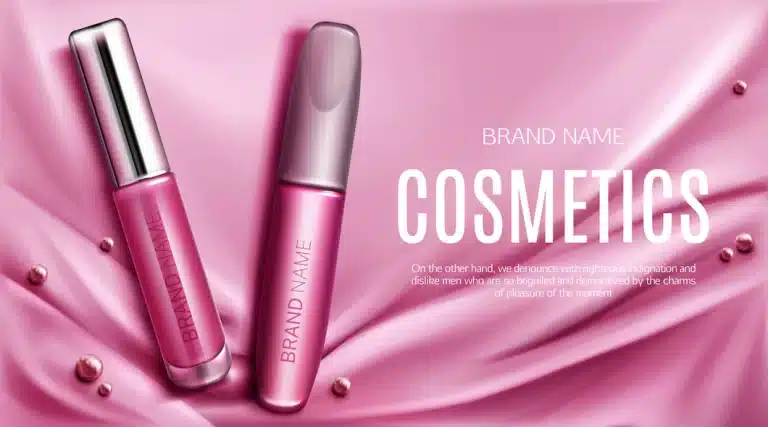
There are various ways to stock up products for a private label cosmetic company. In this article, we’ll focus on the differences between Private Label Cosmetics (PL) and OEM Cosmetics.
Private labeling is branding products from a private label cosmetics manufacturer by affixing a third party’s branding to it. You can choose a set or custom order, name the products and brand them. Some even allow a little more customization.
Another popular option is OEM, which stands for ‘Original Equipment Manufacturer’. Of course, it’s a borrowed term. In the cosmetics world, the OEM option gives you the opportunity to develop your own formulations and package them as you like.
In an OEM arrangement, a supplier may offer you products to customize, guide you, and work with you in the product design stage.
Table of Contents
OEM cosmetic manufacturing or private label? We can do both…
PL offers you the opportunity to choose a set or custom order from existing products (high quality products if you partner with a good manufacturer), customize the product, give it a name and market to potential customers.
People use Contract Manufacturing and OEM interchangeably, but a Contract Manufacturer is simply a manufacturer for hire.
OEM allows you to create your own formula from scratch. This solution gives you more options to create your own beauty products. Your partners will work with you, helping you create your own unique formulas, colors, and packaging—completely different from your competitors.
What is Private Label Cosmetics?
With a private label line, you brand and sell quality in-demand products without creating your own formulations. As a brand owner, you pick ready-made products from your supplier, then the supplier prints your brand logo and product information on them.
There are many OEM makeup and private label makeup suppliers but color cosmetics are mostly made in China, Italy, and the US. China has a wide range of top quality PL cosmetics products. All you need to do is create your own brand and market.
You have less room for customization, but putting your logo on top quality products from a trusted supplier eliminates costly trial and error. Plus, it’s a profitable ecommerce business model. You also get to keep up with the latest trends.
What is OEM Cosmetics?
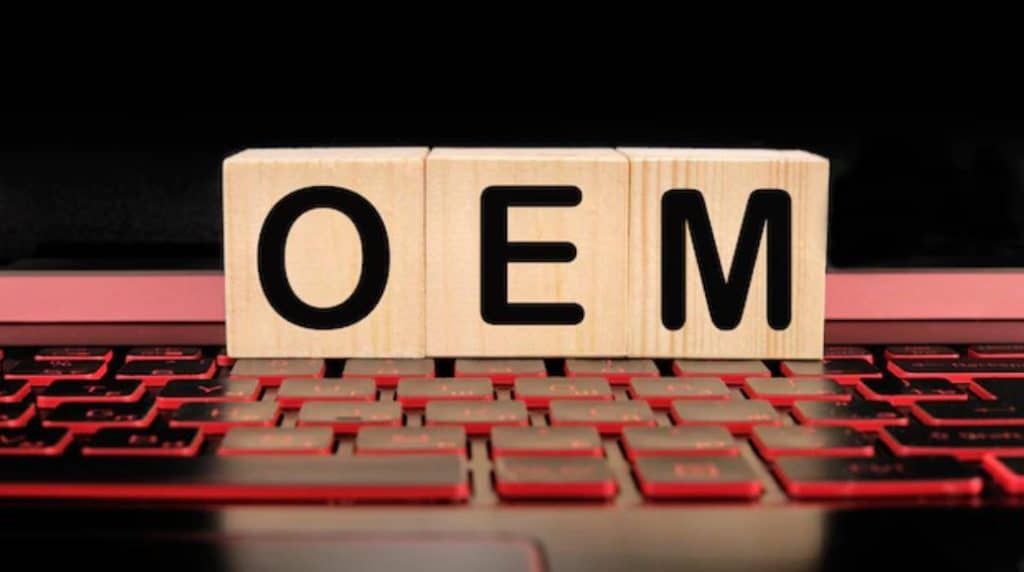
OEM stands for ‘Original Equipment Manufacturer’. As mentioned earlier, OEM is a borrowed term. Here, a company reproduces an original product for you, complete with your company’s brand.
In short, the cosmetics company manufactures your unique formulation using your specs—they formulate the makeup product to your exact standards, using your ingredients and preferred method of production.
This model has been around longer but for other products. Most of the products you’ll see in the market are produced by OEM companies upon request because not everyone can (or wants to) run a factory.
The Apple example is perfect. You’d expect a big corporation like Apple to have its own factories. While they can afford it, they outsource their phone production to suppliers like Foxxcon and Samsung Display (a subsidiary of Samsung Electronics which provides the OLED displays you see on Apple products).
7 Differences Between Private Label Cosmetic company and OEM Cosmetic company
- With PL, you sample a cosmetics manufacturing company’s products, choose, brand, and market as your own. You have less room to customize but you can order the product, brand it, or have the cosmetics company brand the product with your logo. In OEM, the cosmetics manufacturer handles the bulk production of your unique cosmetic or skincare formula. You own the formulation. You can even decide to fill, assemble and package on your own if that works better for you.
- OEM or contract manufacturing gives you room for customization, while private label limits you to the products a cosmetics manufacturer has.
- You need less capital to start a PL cosmetics makeup line because, unlike with OEM, you’ll not invest in R&D—which adds up to OEM startup costs.
- Unlike Private Label, OEM clients stipulate how the product is formulated, including the ingredients and the methods used to produce it.
- Apart from shipping, there are no long waits with the private labels model. The lead time is shorter compared to OEM cosmetics. R&D is a long rigorous process. It can take months to develop the formulation, come up with unique packaging materials and original designs.
- Unlike with the OEM option, private cosmetics labels don’t require a lot of know-how. You just need to research to know what’s best for your market—not how it’s produced. The manufacturer takes the concept, plan and production off of your plate so you can channel all your efforts into marketing and inventory management.
- PL cosmetics has low or no Minimum Order Quantity (MOQ). Most suppliers of OEM products have a minimum quantity number set. Mostly, the lowest is 500 and could be as high as 3,000, depending on the product.
Which is Better? Private Label Cosmetics Company Versus OEM Cosmetics Company

Private label cosmetic manufacturing is popular with entrepreneurs seeking to venture into the cosmetic industry. It’s an easier way for new brand owners to launch their cosmetics line or skincare products. Good cosmetic manufacturers handle everything—from selecting the ingredients to manufacturing the product.
However, OEM cosmetic manufacturers allow you more flexibility—you get to create your own new beauty products from scratch, including your own formulas, colors and packaging. You work with your cosmetics supplier to create your own formulas, preferred shade ranges, and packaging. That gives you more room for differentiation. You get to create your own unique range of cosmetic products together with your manufacturing company partner.
If you’re willing to invest in every step of the production process, OEM is the right path for you.
If you’d rather identify a manufacturer with the best cosmetics and focus on growing your brand, a private label will suit you best. You can choose a set or custom order, customize the product and brand it.
Read on to know the pros and cons of each model to make a better, informed decision.
Pros and cons of private label cosmetics
The beauty of the PL model is… anybody can own a private label cosmetic product line! A good private label company will present you with a wide range of high-quality private label products to choose from and stock under your brand’s name and a variety of branding and packaging options. You get a complete package.
All you have to do is select the products you’re interested in, pick your colors, combinations and variations from the supplier’s library, and sample to ensure they’re up to standards.
After settling on the products you want, the supplier will brand the product(s) with your private labels and ship the consignment to your destination. You can also do your own packaging if you like.
Here are the pros and cons…
Pros of private label cosmetics:
- Minimal hassle.
- Saves time. You don’t have to wait for months.
- Startups enjoy high-profit margins buying products at wholesale prices and then selling them at premium prices for their brands.
- You get top-quality beauty products without spending a fortune if you choose a private label manufacturer keen on developing and testing their range of products.
- You get to work with a minimum budget. You can start small, with a few products and a low minimum order, as you build your brand and grow your retail business.
Cons of private label cosmetics:
- You don’t own the formula, plus it can change.
- You can’t change the supplier without changing the product because every supplier in the cosmetic industry has their own unique formula. You’ll have a hard time with your retail buyers if they notice a difference.
- It limits you to what a supplier has. You’re forced to start with the few products in their catalog as you wait for them to come up with new products. That’s why most brand owners partner with cosmetics suppliers with a wide range of products.
- You have no control over Regulation Compliance requirements. This is crucial because different countries have different regulations for cosmetics products meant for their markets. If a PL supplier does not adhere to, say, UK cosmetics requirements (which are stricter than US’), you’ll need to find another supplier who does.
- Some suppliers make changes to the product formulation, ingredients, or even discontinue the product altogether. While they will explain and you’ll understand, what will you do with your buyers? Will they understand?
Pros and cons of private OEM Cosmetics
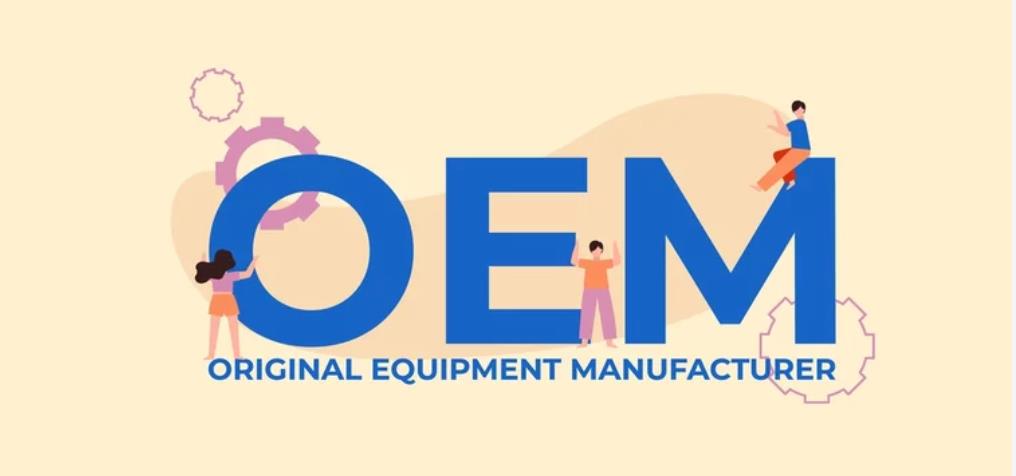
OEM cosmetics is when the manufacturing company comes up with an original product for you or reproduces a product you created. Here are the pros and cons of OEM cosmetics…
Pros of OEM cosmetics:
- This business route is rewarding because it allows you to save on product development while taking advantage of low minimums and fast production. While it’s more expensive compared to the private label model, outsourcing production is still cheaper than setting up and running a factory. You have more flexibility and get to develop and bulk produce your product without investing in a production facility of your own—which would probably eat into your profits and cost you time.
- It makes it possible for cosmetics brand owners willing to venture into the industry with larger SKUs to do so without having to set up and run their own factories.
- You’ll have top of the shelf products thanks to tapping into your supplier’s technology, expertise, and already established testing standards.
- Intellectual property ownership – you not only know the formulation and own it, decide the ingredients, and reserve the right to reformulate, but also have exclusive rights to the product. The intellectual property and trademarks associated with the product belong to you.
- You get to develop unique products based on the exact needs of your target market.
Cons of OEM cosmetics:
- High initial costs and… yes, additional costs. You need a substantial amount of money to develop the formulation, do R&D, and bulk produce. You’ll also have additional costs for design and packaging.
- It’s hard to find good OEM cosmetics manufacturers because first, most of them prioritize companies whose products are in high demand. You might have to wait in line—sometimes for months. And not just that, you want to partner with a manufacturer or supplier who uses the production method you prefer, complies with the set of regulations governing the cosmetics industry you’re in, and has the technology capacity required to develop and produce quality products.
- You need to meet a higher MOQ, sometimes as high as 3,000 pieces for a single product.
- Longer wait from R&D; formulating the product, testing, through to production, design and packaging. Expect to have your product on the shelf in four to five months, mostly but the wait can be longer.
- Unless your product is already in demand, it might take time to break even or to recoup your initial investment.
Who Should Opt for the Private Label Cosmetics Business Model?

If you’re thinking about starting a beauty brand with low startup costs, this is the best path. Find a supplier or manufacturer with an excellent track record of working with startups and with a wide range of products.
It’s especially practical if you’re looking at expanding your cosmetics brand by introducing new products in your catalog.
This is also a perfect choice for someone who wants a full range of products at a lower market minimum. You can launch your makeup brand with various products and packaging without investing in the lengthy R&D process.
Who Should Opt for the OEM Cosmetics Business Model?
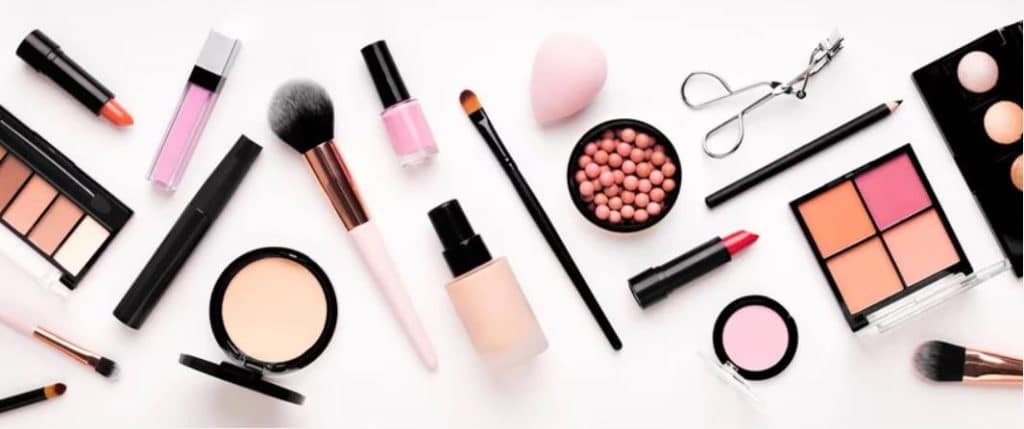
Would you describe yourself as a beauty brand owner who is interested in developing unique cosmetics products from scratch—from formulation to production and packaging? Look for no further. An OEM company is the right path for you.
If you or your companies have developed a unique formulation that’s become popular in the market, you need a manufacturer who can bulk produce it.
This is also a perfection for brand owners who want freedom to use their own unique containers and packages.
It’s also the way to go if you have been struggling to find companies with a specific ingredient that’s not common or one you’ve discovered. Sometimes, dozens of products and so many formulas to choose from is not enough. In that case, go the OEM route.
How to Find a Good Private Label Cosmetics Company: 10 Things to Consider

A good PL manufacturer constantly introduces new products, including special ingredients in special packaging, and special gifts for special occasions, such as Valentines. That’s why it’s important to find a cosmetics manufacturing company with a wide range of high-quality products on its catalog—cream treatments, eye makeup, makeup tool kits, and a wide variety of packaging products to help with customization of your products.
But that’s not enough. There are other factors to consider as you create your own brand, including:
Service levels
Cosmetic companies have levels depending on your budget. Basics include sizing a product or packaging with a variety of stock options for which formulations, packaging and even product names have been predetermined by the manufacturer.
In such cases, they will use a brand or logo on the formulation of stock for personalization. Then there is the cost spectrum. Here, everything is customisable, from product formulation to packaging and marketing. How unique your product will become depends on the amount of money you’re willing to spend. Know what option is available before choosing your manufacturing company partner.
Quality sources and raw materials
Private label makeup is as good as the quality of its ingredients—whether you specialize in cosmetics, skincare products, or custom blends.
Do your due diligence by first researching what’s allowed and what’s not allowed in the countries you intend to target and then find out from the manufacturer where they source ingredients from and what ingredients they have in the products to avoid inconveniences—or worse, major losses.
Remember: a product might have an ingredient that’s considered safe in one country and unsafe in another. Investigate how private labels produce cosmetic ingredients.
Quality
You know your target market and the quality of products they desire. Your brand is at stake if you have your name on a low-quality product. Most private label manufacturers will give you samples of the product, the packages, and design options. Make your decision based on the quality of the samples—the color, the consistency, the smell, etc.
Branding
“Packaging can be theater, it can create a story,” Steve Jobs said. Steve was so keen on packaging that he had a whole team of professionals dedicated to packaging. More than anything else, he taught us the importance of packaging a product. Packaging and good branding catapulted Apple to the top.
No serious brand dares compromise on the quality of their product packaging. People buy “the looks” before they buy the product. You want your target to pick your product off the shelf with pride – especially if it’s a premium product. Get into a deal with a supplier who has inviting packages and a perfect collection.
Besides the look, it’s important to find out if they’re flexible. I mean, can they change it? Is your brand the only that’ll be on the package?
The production process
Considering you’re going to pick ready-made cosmetic products with a formula that’s already decided and a fixed method of production, it’s good do your own research to know how the products are made. It might be a deal breaker depending on your market and the requirements in your region.
A deep understanding of the production process will also tell you how long you’d need to wait between productions. You might discover some production limitations. It’s also a good idea to ask how long it takes a supplier to produce a given product. You’ll avoid long waits.
Some countries are also against some processes so, ask!
Support
What kind of support should you expect from a given PL supplier? You want to get in a “partnership” with a supportive supplier. I mean, do they care about your brand? Are they available to discuss issues? Do they share insights that’ll help you know what to do to get meaningful results in the market or growing rapidly? They need to assist you where possible and keep in contact—not just to inform you of new beauty products.
Certification standards
The FDA regulates cosmetics manufacturing and carries out strict regulations on the label. It has to approve cosmetic products before they’re sold. These inspections are carried out periodically to ensure the manufacturing equipment meets manufacturing standards. The agency also supports a voluntary cosmetics registration scheme which gives manufacturers the opportunity to register the products and ingredients used. Do your research to know if the supplier meets FDA requirements and standards.
Government regulations and safety standards
Most privately branded beauty items in other countries are imported from production markets like China because they are usually substantially better priced than in the US or UK.
Even in the event your company has contracts for private label cosmetic products with foreign brands, which can be popular for their high prices, their products may not meet domestic requirements such as purity. Find out if your manufacturing company in China meets the domestic requirements in the country you intend to market your products.
Specialty Certifications
Make sure the makeup company chosen can meet the certification requirements required to make their brand stand out. If you plan on developing a line that offers organic or cruelty-free products, it’s important you make sure it’s produced using the certified materials.
Minimum order quantities (MOQ)
Initially, it might be hard to order each beauty product in bulk even though you’ll enjoy high profit margins if you buy at wholesale prices. Also, the first few stages of a marketing campaign rarely attract enough customers. That’s why companies prefer to produce smaller batches and seek low-cost or no-cost companies in the private cosmetic market. Find out if this is possible, especially if you want to try so many formulas.
5 Important Things to Consider When Choosing an OEM Cosmetics Manufacturer

The last thing you want is a cosmetics supplier compromising your brand and creating doubts about the quality of your products. You want to be sure a manufacturer or supplier can help you create a perfect collection, meet your requirements and develop a product that meets the standards you’re aiming for.
Here are factors to consider when choosing an OEM cosmetics Manufacturer…
Can the OEM manufacturer meet your target market’s regulation compliance requirements?
If you have specific standards for your products, discuss the details with the supplier prior to getting into the deal. Also, find out about the ingredients and the method of production. You want to get into a deal with an OEM manufacturer who is keen on adhering to good manufacturing practices.
Is the OEM manufacturer certified?
Your product will need a certified seal from the necessary regulatory bodies to be allowed in the market. Unless the supplier is certified, you’ll not market your product without worrying about getting into trouble with the authorities. That’s because governments use these seals as a mark of quality and to assure their citizens that a product is free from substandard or harmful ingredients and is safe to use.
Is the OEM committed to producing quality cosmetic products?
Quality is everything. You need to be sure your OEM of choice will stick to using quality ingredients, use safe and acceptable methods of production, avoid harmful agents, and ensure your product meets international standards.
How do they package their products?
You won’t need to spend more on packaging if you find a supplier with a variety of packaging options to choose from. Always go for safe, quality packaging materials.
Do they label products in line with cosmetics industry guidelines and requirements?
The wrong choice of word or omission can be costly in the cosmetic world. Every word or specification that goes on your label needs to be accurate to avoid misleading your customers.
Governing bodies like the United States Food and Drug Administration (FDA), have labeling requirements for products going to their market.
Work with a company that has a good grasp on required procedures and regulations for various regions and countries.
Top 5 Frequently Asked Questions About Private Label and OEM Cosmetics

1. Will the formula change?
It varies from one private cosmetics label to another, but most suppliers are always looking to improve their range of products. They will keep up with the latest packaging trends and innovations, update shade ranges, improve their formulas, or even phase out a product. The difference is that some suppliers inform their partners in good time.
It’s different with OEM cosmetics because you own it. It’ll be up to you, unless the OEM needs to follow certain new regulations. In that case, your supplier will work with you to ensure your product meets the new standards.
2. How much money do I need to start my beauty brand company?
Your startup cost will depend on the model of production (private label or OEM). OEM is more expensive.
You can also work with your budget if you choose the private label option. You can start with as few or as many products as you’d like and choose your printing option to meet your budget requirements.
3. Which is the best technique for branding?
There are many branding techniques, but different suppliers approach branding differently. There are those who offer logo labels and those who only use pad printing.
However, you’re not limited to a supplier’s branding or even these two. You can also do it on your own if that’s an option.
4. What is the Minimum Order Quantity for cosmetics products?
The MOQ for OEM is definitely higher, but when it comes to private labels, it varies from one supplier to another.
5. Does the manufacturer test the products on animals?
The UK banned products tested on animals in September 2004, making it illegal to test cosmetic products on animals in Europe and to sell such products in the UK and EU.
If you intend to market your product in the UK or the EU, avoid testing your products on animals.
Final thoughts…
This is everything you need to know before starting that beauty products line. We’ve discussed private label and how it differs from OEM, the pros and cons of both models and factors to consider when choosing a cosmetics supplier or manufacturer.
We wound up by answering your questions in the FAQ section. We hope this was helpful and we welcome you to partner with Aurora Global Brands to create a competitive private label makeup brand.
Aurora Global Brands: The Partner You Were Looking For
We’re extremely flexible in the manufacture of the cosmetics on our product portfolio. We believe in going an extra mile for our customers for continued, mutually beneficial business relationships.
We’ll be thrilled to hear from you if you’d like to outsource your OEM production to us or to start your private label cosmetics brand.
Our experts are waiting to walk you through the requirements, and to discuss the prospects, and the steps you need to follow to achieve your goals faster.
What We Do
- Contract manufacturing (commonly known as OEM) of color cosmetics—which we do by developing cosmetics formulas, filling and packing.
- Private label makeup line with low MOQ and fast production.
- Packaging and labeling – Filling the products in the packaging (ours or yours).
Who We Work With
- Beauty Brand owners
- Beauty Shops/ Store owners
- Salon owners
- Makeup artists starting brands on a budget
- E-commerce owner/ Online shop owners
- Social media influencers
- Makeup schools
- Gift companies
- Entrepreneurs/ SMEs



